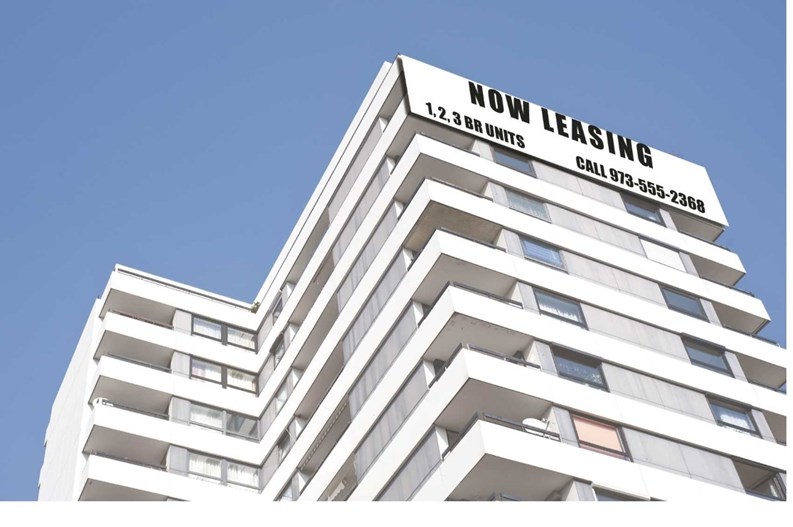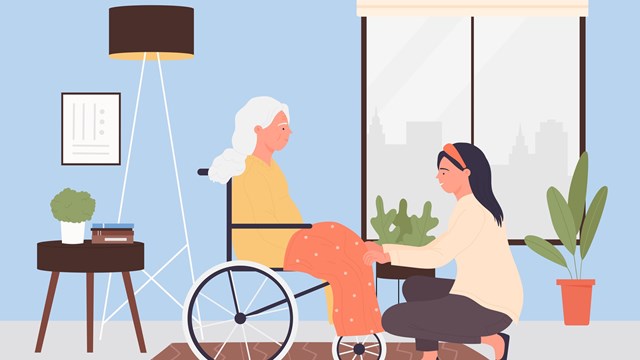As the housing market in many parts of the country has foundered, many developers have taken creative approaches to stanch the outward flow of cash. In many markets, this means opting to convert portions of developments originally intended as condo units into rental properties.
When a condo with no units sold converts to rental, it's not such a big deal, but when there are fully-vested owners who have purchased their units living side-by-side with rental tenants—or when unit owners rent out their apartments as income properties—the situation can become more complicated. Rental tenants simply do not have the same level of investment in the property as owners do, and this can be a source of friction between building residents, as well as board members and managers.
This results in an increasing number of renters in many New Jersey markets—and it’s not without turmoil. Thankfully, there are legal mechanisms in place to protect current condo owners, developers and landlords to make sure the transition is done as smoothly as possible.
Renting is Up
A December article in The Star Ledger, reported that more and more developments are built as rental properties, with several high-end luxury projects on the way along the Hudson River as well as in New Brunswick, Harrison, Morristown, Woodbridge and Lyndhurst. Real estate specialists note that renting is becoming a more popular route for home occupancy because of its freedom and flexibility: tenants don't have to obtain a mortgage or insurance, deal with maintenance and have the option of moving out after a year, or sooner. In a recovering yet still unstable market, renting has many perks over purchasing.
Cindy Petrenko, a property manager at Complete Property Manager Services in Vernon, says that renting has become an increasingly prominent practice in many condo and co-op communities, particularly in the sense of unit owners renting out their unit or a room as a form of supplemental income.
The fear of not being able to sell the unit at a break-even cost or small loss is another driving factor to turn to renting.
“In the residential environment, lots of people are becoming disillusioned with the fact that they can’t sell, as their families grow or their situation changes, so they buy to rent or rent their units,” says Elaine Warga-Murray, CEO of Regency Management Group in Howell. “We have a community in Lakewood where a group of investors came in a bought up a lot of property and now are using most of the properties as rentals,”
Ducks in a Row
Before they go rental, however, the developers and unit owners have to follow a few legal measures.
“If you have an individual unit owner who is wanting to rent out their unit, the first place you have to start is the governing documents,” says attorney Katharine Muscalino, Esq. of Porzio, Bromberg & Newman, P.C in Morristown. “Some of them prohibit leasing out individual units, some of them have requirements for the lease, a common one is it has to be at least a one year lease and you may need to provide a copy of the lease to the association management as well as information on the tenant in the event the association needs to contact them, they are able to do so. The unit owner needs to check and see what the association's requirements are and abide by those.”
Developers who wish to convert condos into rental properties also have a procedure to abide by, but the exact steps vary depending on the situation.
Muscalino says she has worked with developers who keep the development in a condominium form of ownership in which they own all of most of the units and then just lease out the individual units. She says that if a developer wants to convert from ownership to rental property, they have to go through the New Jersey Department of Community Affairs (DCA).
Legal issues may arise if the building has rental caps or establishes rental caps, which can prevent further rentals—or which may force the owners to sell off their units or move into them within a certain time period.
In some cases, according to Brian White, who is executive director of the Chicago-based Lakeside Community Development Corporation, owners have gone so far as to file suit. “The law seems pretty clear that the board has the right to establish rental restrictions, so unless the board is found to have violated a procedural question, they are likely to prevail.”
Once the units are rented, the association or the developer has to make sure that they actually receive the rental payments. Typically, says Petrenko, it’s paid directly to the unit owner, who is then responsible for any additional assessments or maintenance fees.
The unit owner and the tenant could also put a provision in the lease that states that the tenant should pay rent to the association but it would not remove the unit owner's duty to the association to pay their dues, says Muscalino, although she does not recommend this arrangement.
“It is cleaner for the tenant to pay directly to the unit owner. That way, the unit owner knows they are still responsible, even if the unit is vacant or their tenant is behind, that is the owner's problem.”
Getting Along
Once the rent is arranged, the renters have to make sure they’re being treated just as fairly as the owners. They have rights as occupants and residents, such as those extended by the master deed, rules and regulations, and other legal documents, Petrenko says. “They also have the right to use the amenities and common elements because the maintenance fees are still being paid by the unit owner, who is getting their money through the rent,” she says.
The tenants, however, will usually not have the right to vote or serve on the board, says Warga-Murray. Again, the governing documents of your association will outline these rights more specifically.
Should the tenants have any complaints, they are usually filed to the unit owner themselves who will relay it to the manager or the property owner. “A lot of the times I get calls from both and depending on what the call is, for example the health and well-being of the common elements, then it's something that I handle,” Petrenko says.
Another big issue is the renters themselves, and the tension between renters and other owners in the building.
Both Warga-Murray and Petrenko say that some tenants may not have the same pride and respect for the property as unit owners do because their stay is more transient. This attitude can be traced to the fear of losing money, so unit owners will “take anyone they can get,” says Warga-Murray.
Petrenko urges unit owners to be more selective in choosing tenants to ensure they will be respectful to the property and community.
Out With the Bad
If a building has a bad rental tenant, the board and management have a few different options.
The unit owner is responsible for the behavior of his or her tenant, and the rules should be enforced through the unit owner, Muscalino says.
“You would handle the problem as if the unit owner has behaving that way. You would send them a notice or violation. It is then up to the unit owner to address it with their tenant. If it is an immediate concern, the association can typically, under the governing documents, take appropriate action, enter the unit or take corrective action,” she says.
The final concern is whether rental tenants in your building affects the building’s profile with lenders or prospective buyers.
Having 30 percent or more renters can create challenges for buyers seeking financing.
The lenders may still approve of the financing depending on the building’s rationale for having all the renters, but it depends on the totality of the association’s management strategy combined with the building’s finances, White says.
If problems arise, there are multiple resources available to buildings with shareholders and owners and rental tenants living side-by-side.
In addition to understanding all the legalities and formalities surrounding the renting of condos, it’s very important that the unit owners and the developers do a thorough interview with the prospective renters. That interview should include a full understanding of their finances—current and past.
That’s because if the renter harms the building financially or otherwise, it’s up to the unit owner alone to initiate an eviction, which could be a very long and costly endeavor. Lease violations are legitimate grounds for an eviction of a renter, but the unit owner must still jump through hoops to start and complete the legal battle towards an eventual eviction, during which time he or she probably isn’t collecting any rent.
But if everyone is on the same page regarding the rights, the needs and the opportunities that renters could bring to a building—even if they’re temporary—it’s possible for everyone to live respectfully and in harmony. But the building and its tenants need to be prepared for every situation—good or bad.
Danielle Braff is a freelance writer and a frequent contributor to The New Jersey Cooperator. Editorial Assistant Maggie Puniewska contributed to this article.







Leave a Comment